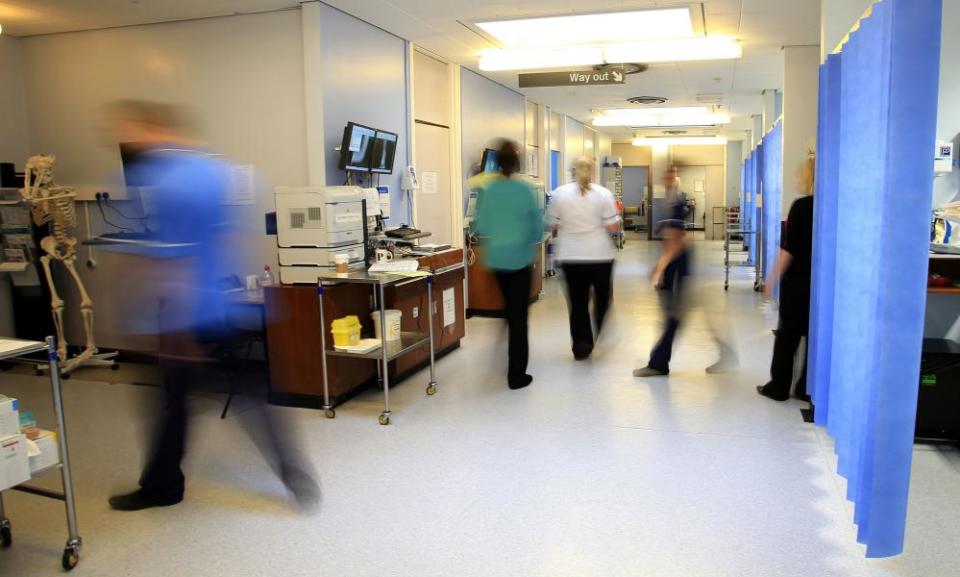Growing numbers of NHS nurses quit within three years, study finds

Gruelling 12-hour shifts, exhaustion and burnout are leading growing numbers of nurses to quit the NHS within three years of joining, new research reveals.
Stress, lack of access to food and drink while at work, and the relentless demands of caring for patients are also key factors in the exodus, the King’s Fund thinktank found.
The NHS must make it an urgent priority to tackle the worryingly poor working conditions nurses and midwives face in many hospitals or face worsening workforce shortages, it said.
“Staff stress, absenteeism and turnover in the professions have reached alarmingly high levels,” the thinktank said after investigating the working conditions faced by NHS nurses and midwives.
“This has been compounded by the Covid-19 pandemic, which has laid bare and exacerbated longer-term issues including chronic excessive workload, inadequate working conditions, staff burnout and inequalities, particularly among minority ethnic groups.”
The 12-hour shift that most NHS nurses work is associated with a higher risk of burnout and job dissatisfaction for them and a lower quality of care for patients, including tasks left undone. It must either be shortened to eight hours or changed so that nurses can have more breaks during their shift, including somewhere to nap then or before they go home, the report’s authors say.
“The current situation is not sustainable,” said Suzie Bailey, the King’s Fund’s director of leadership and organisational development.
“An urgent review is needed to investigate alternative shift patterns and look at mitigating the impact of 12-hour shifts on staff wellbeing, care quality and safety.”
There are 40,000 vacancies for nurses in the NHS in England alone.
Many NHS trusts in England provided free food, drink and parking for staff during the pandemic, including rest hubs and “wobble rooms” where distressed staff could seek support. However, some of these initiatives have recently been discontinued, to the displeasure of staff.
A children’s nurse told the authors how, at their work, “the culture is that you suck it up and don’t have a break, or you’re made to feel like you can’t hack it. There’s a sense that you will just do whatever is asked of you because the patient needs that support”.
The number of nurses and health visitors leaving their posts in hospitals and community services in England within three years of joining has risen almost 50% since 2013-14 and is now 28%. The NHS must do better at keeping new recruits, the report urges.
The Royal College of Midwives welcomed the report, with the group’s executive director for external relations, Jon Skewes, saying: “We cannot expect stressed, exhausted and demoralised staff to continue delivering high levels of care.
“We need to give them the resources and support they need to do their jobs. This means dramatically improving their working conditions and paying them a fair wage for their incredible work.
“The RCM is calling for an early and significant pay rise for our midwives, MSWs [maternity support workers] and their NHS colleagues. This government and the NHS have a duty of care to NHS staff, and they are failing to honour it.”
An NHS spokesperson said: “There are now more than 300,000 nurses in England with over 13,000 nurses joining the NHS recently; and this year there was a 22% increase in applications for nursing degrees, all backed by a £28m fund to boost international recruitment.”
Meanwhile, the Commons public accounts committee will warn on Wednesday that Boris Johnson may fail to fulfil his pledge of recruiting 50,000 more nurses by 2025.
“We are not convinced that [the Department of Health and Social Care] has plans for how the NHS will secure 50,000 more nurses,” it said in a separate report.
It also found that removing the NHS bursary for student nurses in 2017 “signally failed” to lead to the increase in undergraduates studying nursing ministers hoped.
“With the strain of a huge shortage of nurses and the worrying reports of low morale, and huge numbers considering leaving in the next year, we are facing an emerging crisis in nursing,” said the Labour MP Meg Hillier, the committee chair.

 Yahoo Finance
Yahoo Finance 